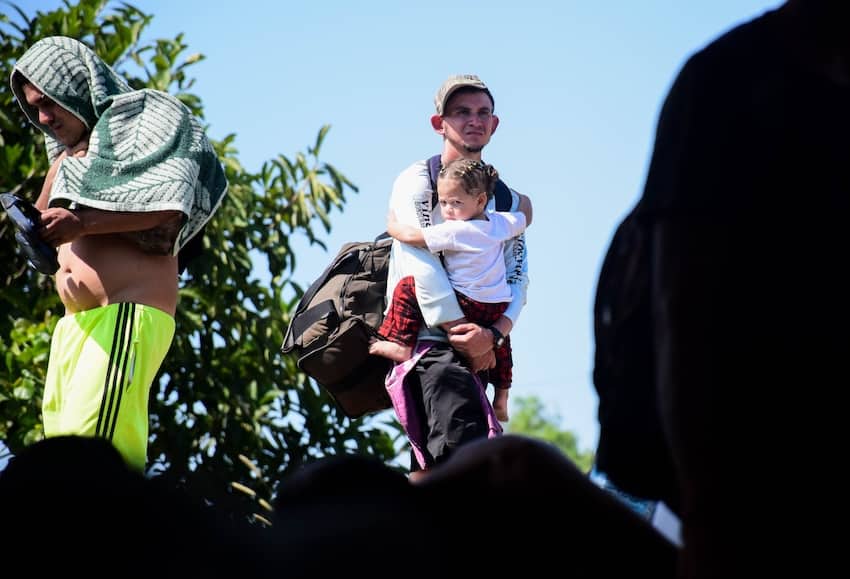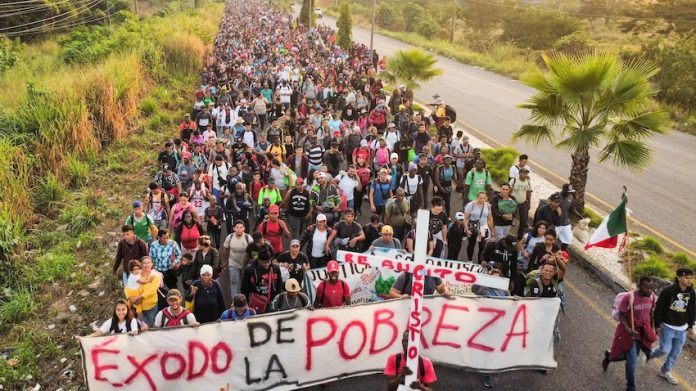A newly formed migrant caravan composed of an estimated 6,000 people spent Christmas Day marching seven hours under the hot sun, just north of the Mexico-Guatemala border.
Temperatures were above 30 degrees Celsius as the caravan members walked approximately 30 kilometers, heading towards the U.S.-Mexico border some 2,500 kilometers away.

The caravan is reportedly the largest of this year, composed mostly of Central Americans, Venezuelans and Cubans. Some media outlets reported its total to be 7,000 people, while others said 8,000.
Its formation near Mexico’s southern border came just days before a high-level delegation including U.S. Secretary of State Antony Blinken and other officials is due to meet in Mexico City with President López Obrador to address migration challenges and hammer out new agreements.
That meeting is set for Wednesday, six days after López Obrador spoke by phone with President Joe Biden.
The sprawling caravan departed from the city of Tapachula, Chiapas, on Sunday morning with a 13-mile walk to the nearby ejido (communal property) of Álvaro Obregón.
Though it was Christmas Eve, there were no celebrations, gifts or family dinners. Instead, several thousand adults and kids hunkered down in a park, which was at least decorated for Christmas. Some set up tents; others slept where they could.
Some caravan members had their own food, such as Fanny Rivas, who made ham-and-cheese sandwiches for her husband and their 6-year-old, 2-year-old and 4-month-old.
Others received sandwiches and bananas from a Catholic church and local residents, and some children were lucky enough to get chicken to eat.
Many woke at dawn on Christmas Day to continue the journey northward.

“It has been a horrible Christmas,” said Bertha del Cid, 32, of Honduras, to a reporter from newspaper La Jornada, while pushing her 3-year-old son in a stroller. “I have slept on the street. I have no money. It has been horrible,” she added, on the verge of tears.
In the space of two days, the group covered more than 40 kilometers, reaching Huixtla, Chiapas, where many spent Christmas night on a sports field.
It was a Christmas “like we have never spent,” said Honduran Karla Ramírez, who is traveling with 18 family members, including four minors. She did acknowledge that attempting the long walk to the U.S border was their choice.
“It is what we have to do” to get a better life, added Venezuelan Eduviges Arias. “This is an opportunity for us.”
Local police and the National Guard followed the group’s advance without intervening.
Mexico registered more than 680,000 foreigners within its borders from January to November this year. In addition, a record number of almost 137,000 people have requested asylum in Mexico in 2023.
At the U.S.-Mexico border this month, U.S. authorities have recorded up to 10,000 illegal crossings on some days, leading to temporary closures at some crossings.
With reports from El País and La Jornada
